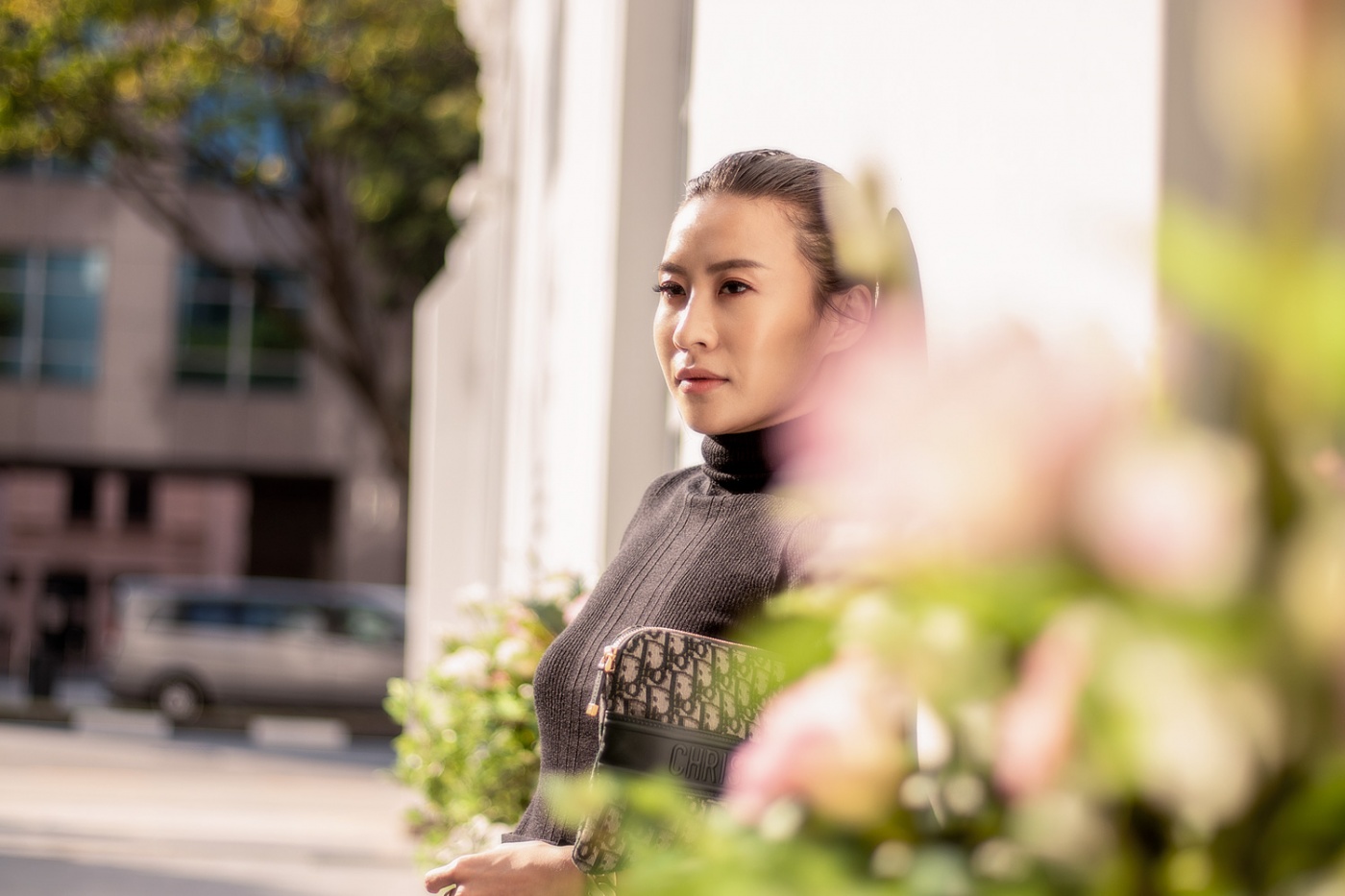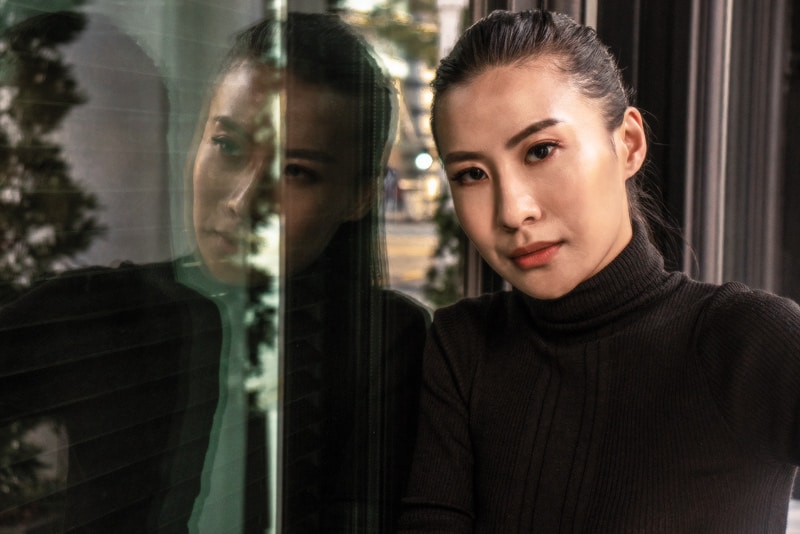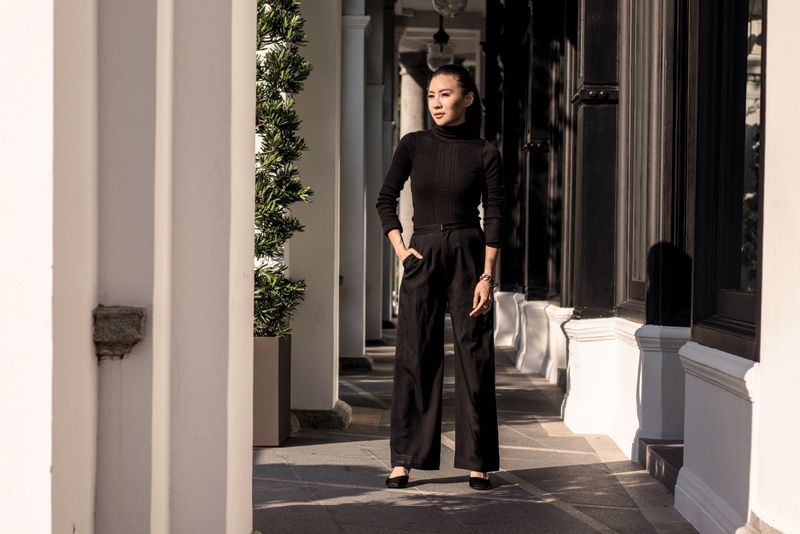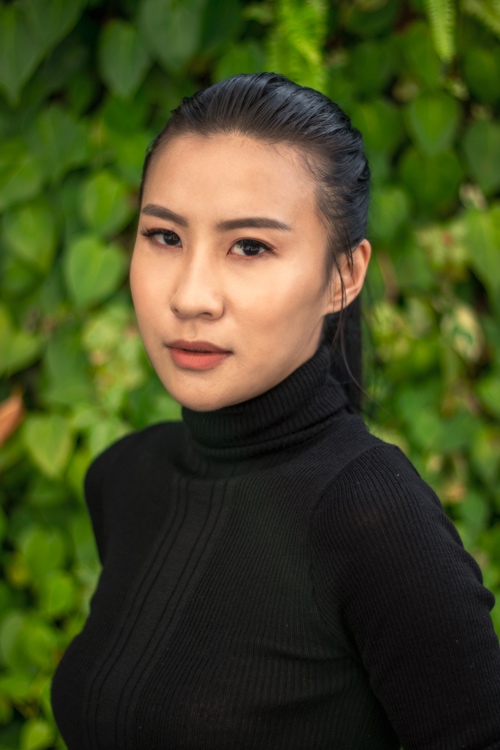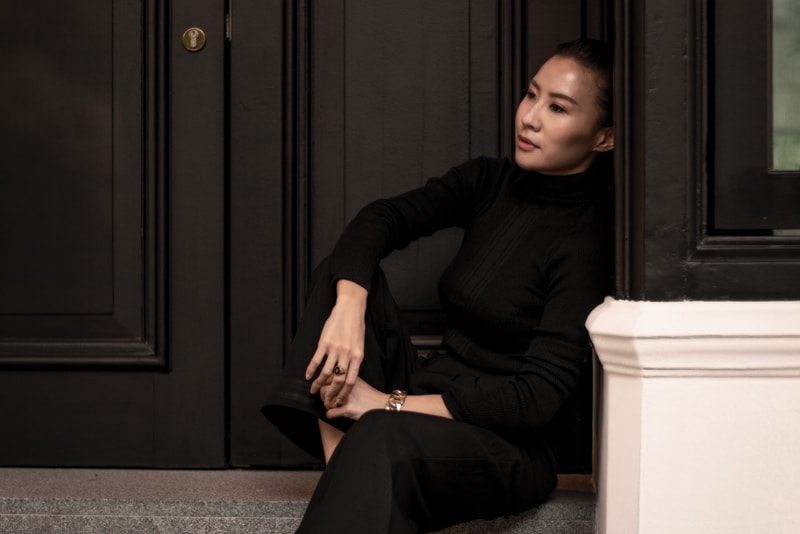On Fashion Influence and Entrepreneurship: Getting To Know Savina Chai
I did not expect Savina Chai to exude a sense of elegance and maturity way beyond her years. At only 24, she has experienced the pains and struggles of running her own business, yet remains positively upbeat about her next endeavour—even though her now-defunct fashion label Eight Slate did not pan out the way she wanted. For now, Savina channels her energy into building a respectable following (76,000) on social media as a fashion influencer and works closely with luxury brands like Chanel, Louis Vuitton and Ferragamo.
It is easy to undermine the accomplishments of an influencer. Not many understand or realise the amount of work that goes into having an Instagram feed that not only has stunning visuals, but also showcases quality, consistency and impeccable taste. Savina isn’t shy to admit that it’s pure hard work. She also carefully curates and produces all her content on her own, and is highly selective of how she positions herself.
It doesn’t take long for you to admire what Savina has accomplished on her own. Dressed in a full black outfit with slicked-back hair in a ponytail, the tenacious and petite filly opens up about her past mistakes, her battle with glaucoma and how she copes with the demands of the industry.
High Net Worth: Who are your biggest influences in fashion?
Savina Chai: Phoebe Philo—she left Céline recently.
What did you think of Hedi Slimane’s new Celine collection?
I didn’t like it at all. A lot of people look up to the Céline aesthetic. And I’m one of them. The current look is no longer empowering. When you purchase a Céline product, you are buying into the lifestyle and image of a powerful and confident woman. Now that the image is gone, people no longer relate to the brand and the house anymore.
Were you extremely disappointed?
Definitely. I have always imagined myself buying Céline ready-to-wear once I reach a certain level of success. Over the past year, I bought some of their shoes and bags, but since the whole direction has changed, it is really disconcerting.
Fashion is volatile and it is ever-changing, how do you stay relevant?
Relevancy is not important to me. As I grow older, my style evolves accordingly, and I think style is a huge part of who you are. What you wear is an expression and extension of who you are on the inside.
How do you define your style?
I used to dress in black and white all the time, but I’m playing with a lot of colours, textures and prints now.
In the beginning, what motivated you to be an entrepreneur?
I have always wanted to make an impact on the fashion community and that led to me running my own business. During my time at Eight Slate, I got to interact with people on a personal level and make a difference in someone’s life—to the point where my consumers would write me letters to thank me for inspiring them.
Why did you decide to pursue fashion design?
I didn’t know which area of fashion I wanted to pursue, but I always knew that I wanted to be in the industry since I was a kid. After my final year in polytechnic, I decided to go for it. I was young, reckless and did not make any plans. I took out $10,000 from my savings, made my first collection, and started selling online. I did not plan for my label to last more than six months, but it lasted for three and a half years.
When you started your own label at 19, what were some of the biggest struggles?
I had cash flow problems—$10,000 is not going to get you anywhere. Within a month of production, my funds were wiped out and I was left penniless. I was on my own throughout the three and a half years. My parents are not business savvy and I did not have any friends in the fashion industry.
So you bootstrapped all the way?
Yeah, I did a lot of things on my own: photography, graphic design, accounts and even web design. I was fortunate to meet a lot of talented friends who helped me along the way—photographers and makeup artists would give me discounted rates.
Do you remember when you hired your first staff?
A year into business. Staff management was a huge problem. Since most of them were older than me, they would think that I’m young and inexperienced. Even when I was negotiating with suppliers and manufacturers, they would see me as a meimei who could be easily manipulated. Further into the business, looking for investors was also very challenging.
How did you get people to take you seriously?
I believed that I didn’t have to prove myself to anyone. I was focused on the way I carried myself and if people were to meet me personally, they would be able to see what I was capable of. Establishing mutual respect was crucial.
Has your education in Temasek Polytechnic helped you in any way throughout your entrepreneurial journey?
I didn’t build my connections in school because when I was studying, I had multiple part-time jobs and styling gigs. I did freelance styling for online boutiques and designed for a few blogshops.
What were your biggest mistakes as an entrepreneur?
I was very impatient and reckless—there were many things that I didn’t think through before executing.
If you could do one thing differently, what would it be?
I would have gotten some work experience first instead of starting my label at 19.
Do you think that being an entrepreneur is one of your greatest risks in life?
The biggest risk for me is not having any professional experience. In comparison to people my age, I don’t have a degree and I have not worked in a professional setting. I worry that down the line, I will not have any proper qualifications or skillsets to return to the corporate workforce.
There is a lot of debate on the need for paper qualifications.
That has been on my mind for the past few months. There are certain businesses that I want to launch, but the challenge for me is that I lack the proper jargon and framework to put together a business strategy plan. The thought process is there, but communicating and executing it is a big struggle because I don’t have the proper knowledge. I always have this nagging feeling that perhaps I will be able to do it the right way if I had furthered my studies or went to work at a consulting firm.
There are also people who feel restricted to their field of study. They follow a predetermined path and don’t diversify because of their specific skillset.
In this day and age, I don’t think anyone is limited to their specific field of study. It’s just that for jobs like engineering and medicine, you still require your certification to even enter the field. For the creative industry, it’s easier, as long as you possess the basic skills.
Previously, you ran your own business and you also lectured at Temasek Polytechnic. In addition to being an influencer, do you ever feel overwhelmed because you have so many things going on?
I do feel overwhelmed sometimes, but I’m also a restless person who needs to maximise 24 hours every day.
Do you have an assistant to help you manage your social media content or do you everything on your own?
I have an assistant to help me hold the camera because I cannot shoot myself. All the creative content is curated by me to ensure that the consistency is there.
So who follows you to Fashion Week?
I have one videographer with me. My videographer needs to be able to capture all the fashion moments like the behind-the-scenes as well as the candid moments. If I were to make fashion films, he needs to know how to do that.
Do you have a go-to person for the job?
No, I work with a lot of videographers and photographers.
Do they approach you or do you look for someone specifically?
I will look for one.
How do you know if the person is suitable for the job?
I have a few videographers that I work with and usually, I will have a trial period with them. My style is very unique and a lot of videographers have problems trying to fit into my vision. Some videographers are very particular about what they want to film, especially the younger videographers, but they need to understand that in the professional world, it’s about what the client wants and not so much about what they want.
Can you elaborate more on your unique style?
My videos are very catchy, fast and edgy. Most videographers prefer to shoot documentary-style or use cooler tones whereas my aesthetic is a bit warmer and every video has its own story, with fast cuts and lots of effects.
Let’s debunk some of the common misconceptions about being an influencer.
At the end of the day, the audience only sees what we want them to see. They think that we get a lot of free stuff, fly around in business class and get sent to all these amazing places. Personally, I am thankful to be able to travel because without this platform, I will not be able to afford it. Many people seem to think that I come from a privileged background, but I don’t—and a lot of it is hard work. People just group influencers as privileged socialites. They don’t know that we don’t get to sightsee or enjoy our trips as much because it is ultimately still a job. We hardly have time to sleep. I only get about three hours of sleep a day—we wake up at about 4 am to get to a specific tourist destination by 6 am so that we don’t get any tourists in our shots. As an influencer, a lot of my professional achievements are being dismissed because people are so fixated on the label. Eventually, if I were to go back to the corporate world, being labelled as an influencer will undermine my personal achievements, so that may be a struggle for me in the future.
What made you go down the path of being a social media influencer?
Initially, I just wanted to share my love of fashion. Along the way, I made a lot of meaningful friendships that I wouldn’t have been able to without Instagram. I met fellow entrepreneurs and like-minded people who are very similar to me.
I understand that you suffer from partial blindness because of glaucoma. Can you share your thoughts and feelings when you were diagnosed with it?
I was working on my label at that point and was basically a one-man show, which caused layers of stress to pile on me. I paid no heed to my condition initially because it wasn’t life-threatening. It only hit me when the side effects came in—it affected me mentally and I didn’t leave my house for six months. I had terrible double vision and strabismus. I couldn’t go to events, meet clients, do photoshoots… I could not even look at myself in the mirror. That took a huge toll on my mental health and affected my work gravely.
Your work is heavily dependant on visuals.
That was one of the biggest mental challenges of my life. I experienced two major ones. The doctors couldn’t tell me when I could do an operation to fix it, so it was always a waiting game. My mental endurance was put to the test.
What was the other challenge?
I had legal problems with my investor. We had to go to court… dealing with a lawsuit was tough.
How is your eyesight right now?
My left eye is only left with 30% and my right eye is still fine for now. It might worsen as I age. Probably by 70, I might have nothing left, and there is no guarantee. It depends on how fast it deteriorates with age.
Do you take supplements to help with your eye?
I have tried everything. I spent a lot of money on doctors and specialists, but they always tell me the same thing. If it’s gone, it’s gone, there is nothing else I can do.
Are you at peace with it?
After four years, you have to be at peace with it, otherwise, you are never going to be happy. There are times when I get very angry with myself but I try very hard to suppress it.
What is your coping mechanism? You have clearly been through a lot.
Boxing and high-intensity workouts—it keeps my mind quiet during that one hour of exercise. While others may turn to meditation, I choose to sweat it out.
What fulfils you currently?
I’m still searching for it. I don’t think I am where I want to be yet, so I can’t say that I’m satisfied.
Do you have a goal or a milestone that you want to hit next?
In the next five years, I would like to launch a sustainable and scalable business. My plan for the next two years is to find the right business model and like-minded partners to work with. I am also working on improving my skills and fixing my shortcomings like public speaking, business strategy and account management.
Finally, how would you like people to remember you?
I would like to be remembered as someone who is very driven.
